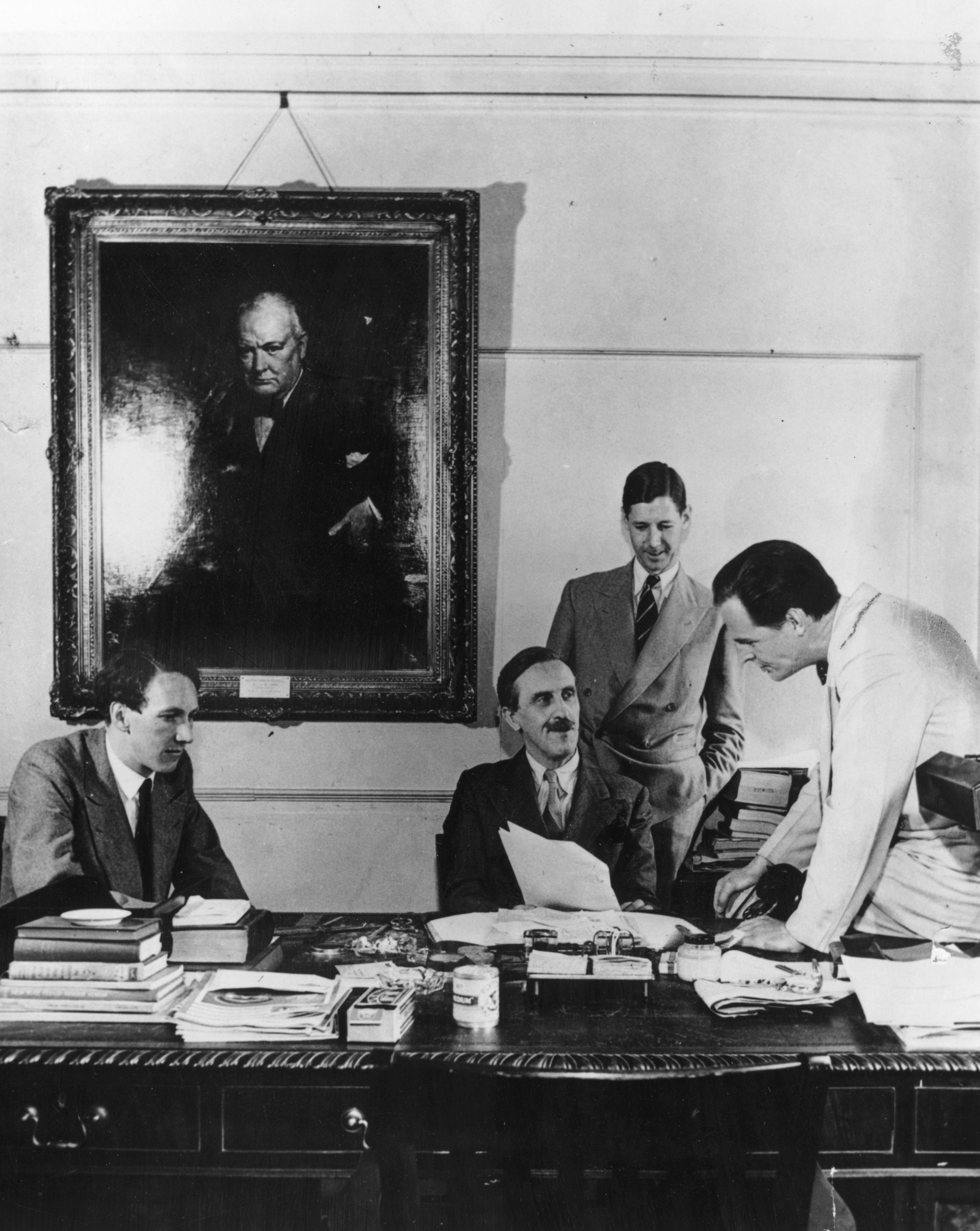Maclean, Donald (1913-1983), was a British diplomat who worked as a spy for the Soviet Union. He was a member of one of the most damaging spy rings ever uncovered by Western intelligence services, along with Guy Burgess, Anthony Blunt, and Kim Philby. See Blunt, Anthony ; Burgess, Guy ; Philby, Kim .

Donald Duart Maclean was born in London on May 25, 1913, the son of Sir Donald Maclean, a Liberal Party politician and Cabinet minister. He was educated at Gresham’s School and Trinity College, Cambridge University. Arriving at Trinity in the 1930’s, he met Blunt, Burgess, and Philby. Like them and other young intellectuals of the time, he was attracted to Communism and was recruited to work for Soviet intelligence. Maclean joined the United Kingdom’s diplomatic service in 1935. He rapidly advanced to a high position in the foreign office, serving in the British embassies in Paris; Washington, D.C.; and Cairo, Egypt.
Maclean’s posting in Washington (1944-1948) proved particularly valuable to the Soviet government. As first secretary and later as head of chancery in the British embassy there, he served as secretary to the Combined Policy Committee on Atomic Development and had access to top-secret information on the United States atom-bomb program. He was also in a position to supply the Soviet government with information concerning the establishment of the North Atlantic Treaty Organization (NATO). After returning from his Cairo posting in 1950, Maclean was appointed head of the American department in the Foreign Office. In this highly sensitive post, he helped in the development of American and British policy for the Korean War (1951-1953).
By 1951, however, Maclean was suspected of being a Soviet agent. In May of that year, a joint American and British investigation was about to unmask him when he and Burgess fled from the United Kingdom to Russia, following a warning from Philby. In Moscow, Maclean became a Soviet citizen, working for the Soviet foreign ministry and the Institute of World Economic and International Relations. In 1970, he wrote a book called British Foreign Policy Since Suez, 1956-68. He died on March 6, 1983.
